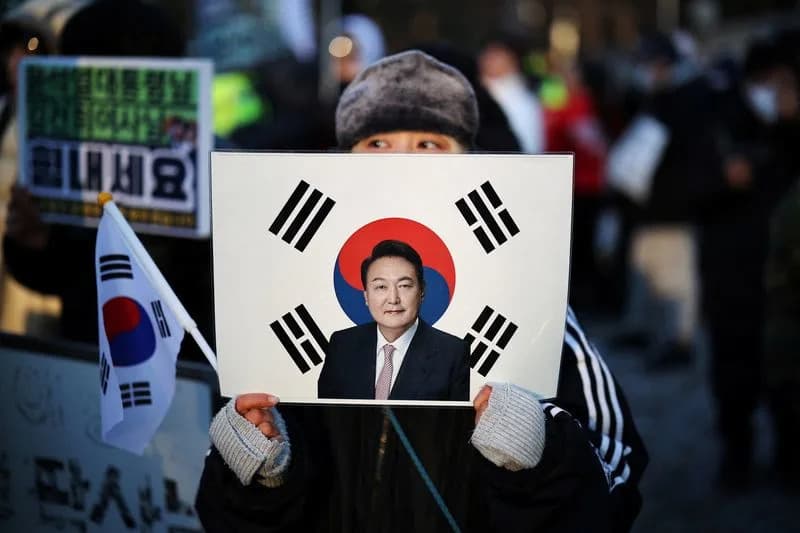Juan Ponce Enrile, a central and controversial figure in the Philippines who helped design martial law under Ferdinand Marcos and later played a key role in the 1986 People Power uprising, has died at 101. He passed away at home after treatment for pneumonia. Enrile served in top posts including defence minister and Senate president, later becoming chief legal counsel to President Marcos Jr. His record remains polarising: praised by supporters as a dedicated public servant and condemned by victims' groups as an architect of repression.
Juan Ponce Enrile, Controversial Architect of Marcos-era Martial Law, Dies at 101

Juan Ponce Enrile, a powerful and polarising figure in modern Philippine history who helped design the martial law era under Ferdinand Marcos and later played a pivotal role in the 1986 People Power uprising, died at the age of 101. His daughter, Katrina Ponce Enrile, said he passed away at home at 4:21 pm (0821 GMT) after receiving treatment for pneumonia and was "surrounded by our family." She added there will be a public viewing.
Early life and rise to power
Born Juanito Furagganan on February 14, 1924, Enrile later adopted his father's surname and trained as a lawyer, including studies at Harvard. He rose through government ranks to hold high-profile posts such as customs chief, justice minister and, later, defence minister — becoming one of Ferdinand Marcos's closest advisers after Marcos won the presidency in 1965.
Martial law and controversy
Enrile is widely remembered as a principal architect and enforcer of the brutal martial law imposed by Marcos in 1972. The decree cited a series of violent incidents around the country, including an alleged assassination attempt on Enrile — an episode he gave conflicting accounts of over the years. Under martial law Enrile was often described as the country's second-most-powerful official, with broad authority over detention and release.
Human rights organisations estimate that Marcos's security forces killed, tortured, sexually abused, mutilated or arbitrarily detained tens of thousands of people during that period; more than 11,000 victims have since been officially recognised and compensated. Enrile never apologised for his role and defended martial law, telling reporters in 2006:
"It was operating well at least from 1972 all the way to 1975, but somehow along the way, just like everything that we do in this country, a good beginning sours."
People Power and political reversals
By the 1980s Enrile fell out of favour with elements of the Marcos inner circle. He helped organise the Reform the Armed Forces Movement (RAM), a group of dissident officers. Following the 1983 assassination of opposition leader Benigno Aquino and widespread fraud in the 1986 elections, Enrile and other officers took refuge in Manila's military headquarters. Their appeal for public support helped spark the mass "People Power" demonstrations that toppled Marcos, installed Corazon Aquino as president and restored democracy.
Later career and legal troubles
Aquino briefly appointed Enrile defence minister. Over ensuing decades he remained an influential politician: he served many terms as a lawmaker and was Senate president from 2008 to 2013. He was detained briefly in 1990 and 2001 in connection with alleged coup plots, and arrested again in 2014 over allegations tied to a large corruption scandal.
Citing his "fragile health," the Supreme Court granted him bail in 2015 so he could be treated at home. A special graft court dismissed the plunder charge against him last year, and he was acquitted of remaining graft cases last month.
Reactions and legacy
Reactions to Enrile's death underlined a deeply divided legacy. President Ferdinand Marcos Jr., who appointed Enrile as his chief legal counsel after the 2022 election, praised him as "one of the most enduring and respected public servants" who helped guide the country through defining moments. By contrast, survivors and former dissidents condemned Enrile as a chief architect of repression and corruption. As one activist put it, the group has "no tears to shed" for a man many view as responsible for years of suffering under authoritarian rule.
Enrile's long political life — from power behind the Marcos regime to a catalyst of its downfall, then to an elder statesman allied once more with the Marcos family — ensures his legacy will continue to provoke debate in the Philippines for years to come.
Help us improve.

























